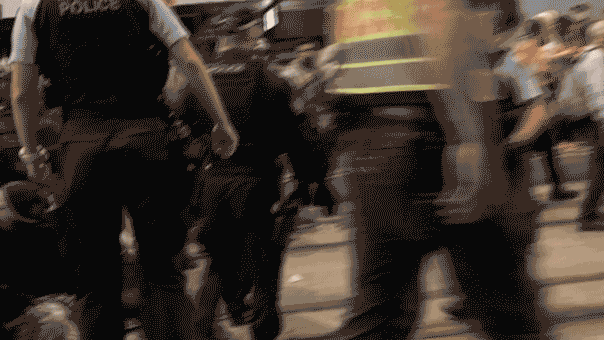CAIRO – Egypt's Coptic Church withdrew Monday from an Islamist-dominated committee to draft the nation's new constitution and a leading Christian figure said the minority was never really represented to begin with.
The move fed growing fears that Islamists and the military will end up controlling the most important governmental bodies in post-revolutionary Egypt and minorities, women and the liberal groups that drove last year's uprising will be largely excluded. Out of 100 members of the committee originally selected, there were six Christians, six women and a handful of liberals -- disproportionately low numbers.
Yousef Sidhom, editor of the weekly Watani newspaper and a Coptic Church official, said the church never officially put forth any members for the panel selected last week.
"How can we withdraw from something we have not been a part of," he said. "We are calling on people to withdraw along with other groups that have pulled out," Sidhom added.
The new constitution will determine whether Egypt leans toward more conservative Islam and whether the decades-old system that concentrated power in the hands of the president will be maintained or replaced by an empowered parliament under an Islamist majority.
The Coptic boycott was the latest defection from the vital body, whose work could set the tone for Egypt's government for decades to come. Liberal and secular members and the main Christian church have left the panel, complaining of lack of diversity. The result is that Islamists, a majority on the panel to begin with, have only cemented their hold on the process.
The Muslim Brotherhood's party and a smaller ultraconservative Islamist faction took more than 70 percent of seats in parliament in elections several months ago, the first vote since the ouster of authoritarian leader Hosni Mubarak in a popular uprising last year. The parliament was responsible for appointing the constitutional panel.
The Brotherhood also declared this week it would field a presidential candidate in May elections, reversing an earlier pledge that it would not contest the vote. That too stoked the concerns that the next government will not be inclusive and represent the whole spectrum of society.
The state news agency MENA reported Monday that the church called its participation "futile" under the current makeup of the panel, dominated by Islamists.
Christians make up about 10 percent of Egypt's 85 million people and most of them are Copts.
A former member of the church's administrative affairs body, Nabil Mirhom, and the Coptic Pope's lawyer, Magdy Shenouda, were both nominated as symbolic representatives to the panel and both have withdrawn, according to Sidhom. They were among the six Christians originally appointed to the panel.
Last week, former Christian lawmaker and Political Science Professor Mona Makran Obeid said the panel also had no Bedouins from Egypt's Sinai Peninsula and no Nubians from the southern border with Sudan. Both groups are minorities.
"This panel has to be greater than the result of a parliamentary election," said Obeid, explaining why she withdrew.
In total, some 25 public figures have pulled out, saying the body that was voted on by parliament fails to represent the country's diversity and does not have enough constitutional experts.
A representative from Egypt's pre-eminent institute of Islamic learning , Al-Azhar, has also withdrawn from the assembly.
Some of those who have pulled out are planning to return to street protests. But some liberals are also calling on the country's ruling military to intervene.
The head of the ruling military council, Field Marshal Hussein Tantawi, met with representatives of political parties, including the Brotherhood's political arm, to discuss the standoff before the panel met last week.
A recent statement by the military council said "there will not be a specific constitution for a specific faction."








































